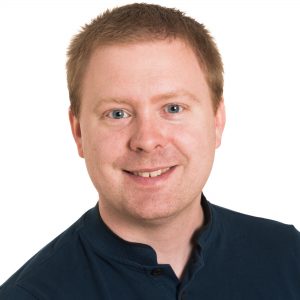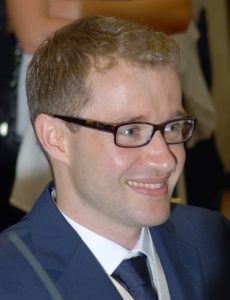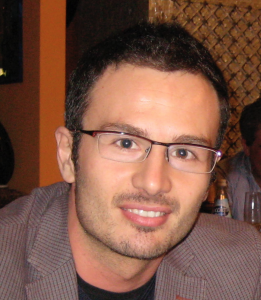
Emil Björnson received the M.S. degree in engineering mathematics from Lund University, Sweden, in 2007, the Ph.D. degree in telecommunications from the KTH Royal Institute of Technology, Sweden, in 2011. From 2012 to 2014, he held a joint post-doctoral position at the Alcatel-Lucent Chair on Flexible Radio, SUPELEC, France, and at KTH. He joined Linköping University, Sweden, in 2014 and is currently Associate Professor and Docent at the Division of Communication Systems.
He performs research on multi-antenna communications, Massive MIMO, radio resource allocation, energy efficient communications, and network design. He is on the Editorial Board of the IEEE TRANSACTIONS ON COMMUNICATIONS and the IEEE TRANSACTIONS ON GREEN COMMUNICATIONS AND NETWORKING. He is the first author of the textbooks Massive MIMO Networks: Spectral, Energy, and Hardware Efficiency in 2017 and the Optimal Resource Allocation in Coordinated Multi-Cell Systems in 2013. He is dedicated to reproducible research and has made a large amount of simulation code publicly available.
Dr. Björnson has co-authored papers that received best paper awards at the WCSP 2017, IEEE ICC 2015, IEEE WCNC 2014, IEEE SAM 2014, IEEE CAMSAP 2011, and WCSP 2009. He has performed MIMO research for over ten years and has filed over ten related patent applications. He received the 2016 Best Ph.D. Award from the EURASIP, the 2015 Ingvar Carlsson Award, and the 2014 Outstanding Young Researcher Award from the IEEE ComSoc EMEA.
 Jakob Hoydis received the Dipl.Ing. degree in electrical engineering and information technology from RWTH Aachen University, Germany, and the Ph.D. degree from Supélec, Gif-sur-Yvette, France, in 2008 and 2012, respectively. He was a co-founder and the CTO of the social network SPRAED and worked for Alcatel-Lucent Bell Labs, Stuttgart, Germany. He is a member of Technical Staff with Nokia Bell Labs, France, where he is investigating applications of deep learning for the physical layer. He has co-authored the textbook Massive MIMO Networks: Spectral, Energy, and Hardware Efficiency in 2017. His research interests are in the areas of machine learning, cloud computing, SDR, large random matrix theory, information theory, signal processing, and their applications to wireless communications. He was a recipient of the 2012 Publication Prize of the Supélec Foundation, the 2013 VDE ITG Förderpreis, and the 2015 Leonard G. Abraham Prize of the IEEE COMSOC. He received the IEEE WCNC 2014 Best Paper Award and has been nominated as an Exemplary Reviewer 2012 for the IEEE COMMUNICATION LETTERS.
Jakob Hoydis received the Dipl.Ing. degree in electrical engineering and information technology from RWTH Aachen University, Germany, and the Ph.D. degree from Supélec, Gif-sur-Yvette, France, in 2008 and 2012, respectively. He was a co-founder and the CTO of the social network SPRAED and worked for Alcatel-Lucent Bell Labs, Stuttgart, Germany. He is a member of Technical Staff with Nokia Bell Labs, France, where he is investigating applications of deep learning for the physical layer. He has co-authored the textbook Massive MIMO Networks: Spectral, Energy, and Hardware Efficiency in 2017. His research interests are in the areas of machine learning, cloud computing, SDR, large random matrix theory, information theory, signal processing, and their applications to wireless communications. He was a recipient of the 2012 Publication Prize of the Supélec Foundation, the 2013 VDE ITG Förderpreis, and the 2015 Leonard G. Abraham Prize of the IEEE COMSOC. He received the IEEE WCNC 2014 Best Paper Award and has been nominated as an Exemplary Reviewer 2012 for the IEEE COMMUNICATION LETTERS.
 Luca Sanguinetti received the Laurea degree (cum laude) in telecommunications engineer and the Ph.D. degree in information engineering from the University of Pisa, Italy, in 2002 and 2005, respectively. Since 2005, he has been with the Dipartimento di Ingegneria dell’Informazione, University of Pisa. In 2004, he was a visiting Ph.D. Student with the German Aerospace Center, Oberpfaffenhofen, Germany. From 2007 to 2008, he was a Post-Doctoral Associate with the Department Electrical Engineering, Princeton. In 2010, he was selected for a Research Assistantship with the Technische Universitat Munchen. From 2013 to 2017, he was with the Large Systems and Networks Group, CentraleSupélec, Gif-sur-Yvette, France.
Luca Sanguinetti received the Laurea degree (cum laude) in telecommunications engineer and the Ph.D. degree in information engineering from the University of Pisa, Italy, in 2002 and 2005, respectively. Since 2005, he has been with the Dipartimento di Ingegneria dell’Informazione, University of Pisa. In 2004, he was a visiting Ph.D. Student with the German Aerospace Center, Oberpfaffenhofen, Germany. From 2007 to 2008, he was a Post-Doctoral Associate with the Department Electrical Engineering, Princeton. In 2010, he was selected for a Research Assistantship with the Technische Universitat Munchen. From 2013 to 2017, he was with the Large Systems and Networks Group, CentraleSupélec, Gif-sur-Yvette, France.
Dr. Sanguinetti has co-authored the textbook Massive MIMO Networks: Spectral, Energy, and Hardware Efficiency in 2017. He served as the Exhibit Chair of the 2014 IEEE International Conference on Acoustics, Speech, and Signal Processing and as the General Co-Chair of the 2016 Tyrrhenian Workshop on 5G&Beyond. He served as an Associate Editor for the IEEE TRANSACTIONS ON WIRELESS COMMUNICATIONS, and as a Lead Guest Editor of the IEEE JOURNAL ON SELECTED AREAS OF COMMUNICATIONS Special Issue on Game Theory for Networks and as an Associate Editor for the IEEE JOURNAL ON SELECTED AREAS OF COMMUNICATIONS (series on Green Communications and Networking). He is currently serving as an Associate Editor for the IEEE SIGNAL PROCESSING LETTERS.
His expertise and general interests span the areas of communications and signal processing, game theory and random matrix theory for wireless communications. He was a co-recipient of two best paper awards: the IEEE Wireless Communications and Networking Conference (WCNC) 2013 and the IEEE WCNC 2014. He was also a recipient of the FP7Marie Curie IEF 2013 Dense deployments for green cellular networks.
